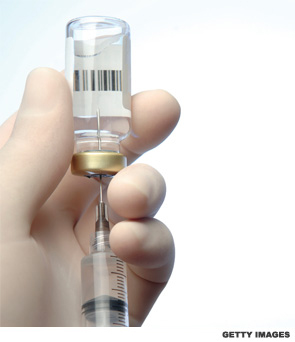
Sixty-six years after the discovery of glucocorticoids by Philip S. Hench, Edward Kendall and Tadeus Reichstein, the debate over the use of these powerful drugs in rheumatoid arthritis (RA) continues in the rheumatology community.
“Few issues in rheumatology evoke the ire of rheumatologists as much as discussions around who should or should not get glucocorticoids,” says Kenneth G. Saag, MD, MSc, Jane Knight Lowe Professor of Medicine, Division of Clinical Immunology and Rheumatology, and director of the Center for Education and Research on Therapeutics (CERTs), Center for Outcomes Effectiveness and Education (COERE), and Center of Research Translation (CORT) in Gout and Hyperuricemia at the University of Alabama at Birmingham. The current debate revolves around questions of whether glucocorticoids should be used as bridge therapy, in long-term low dosages, in low-dose timed-release formulas—or not at all. “This continues to be a contentious topic,” says Dr. Saag.
Why is the question of steroid use still so divisive? We talked recently with those on both sides of the debate and explored the reasons for ongoing diversity of opinion. Clearly, there is not much dissension about use of high-dose steroids in RA. “Although they’re necessary in many serious disorders, we generally do not advocate for chronic high-dose steroid use,” says Dr. Saag. But a number of factors in the past 20 years have reinvigorated the debate for what might constitute safe and effective use of chronic low-dose steroids.

Professor Anthony Russell, MD, Division of Rheumatology, Department of Medicine, University of Alberta, Edmonton, Canada, is not a proponent of giving steroids to patients with RA [see “Why Oral Corticosteroids Should Not Be Used in Patients with Rheumatoid Arthritis,” The Rheumatologist (April 2013)]. The debate in favor of steroids, he says, was revived by studies showing that low-dose prednisolone retarded X-ray changes in the joint.1,2,3
Slowing progression of structural damage “is the classic definition of what a DMARD [disease-modifying antirheumatic drug] is,” notes Dr. Saag.

Dr. Russell maintains that these studies are responsible for what he calls the “increased fashion” for use of steroids. However, he believes that the time for including steroids in the RA treatment armamentarium has passed. “Yes, they work, but why bother?” he says. “We’ve got good drugs, and we don’t need steroids any more,” he asserts.
Maarten Boers, MD, PhD, MSc, professor of clinical epidemiology and a rheumatologist at VU University Medical Center and the Reade Clinic, Amsterdam, The Netherlands, is a vocal member of the “pro” glucocorticoid camp and has spent his time “trying to get the message across that we should listen to what the data [are] telling us, and that we should give glucocorticoids back their rightful place in the treatment of rheumatoid arthritis.”